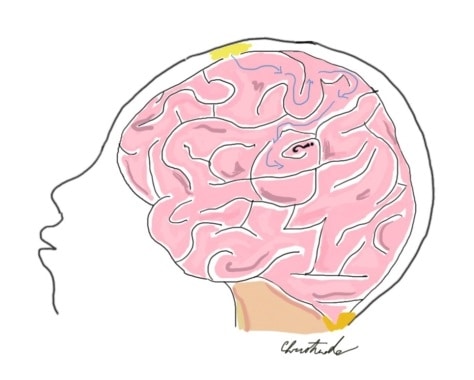Researchers at U of T have found that immune cells from the intestine can be used to reduce brain inflammation in patients with multiple sclerosis (MS). When outside of the gut, these IgA-producing plasma cells attenuate disease symptoms within the central nervous system (CNS). IgA is an antibody commonly found in mucous membranes.
MS results in inflammatory lesions throughout the CNS, including the brain and spinal cord, disturb the transmission of electrical signals through nerves. The consequent symptoms vary from person to person, but often include impaired sensation, cognition, and coordination.
Studies have focused on preventing the formation of new inflammatory lesions. This involves depleting or suppressing the activity of immunoreactive plasma cells. These plasma cells originate as B cells but differentiate in response to the presence of an antigen, releasing antibodies that trigger the immune response and simultaneous inflammation.
Previous trials have examined the effects of suppressing B cells, as opposed to plasma cells. The depletion of B cells has been shown to prevent the formation of inflammatory CNS lesions. Contrarily, the neutralization of plasma cells has been shown to exacerbate the MS symptoms.
Due to these opposing results, U of T researchers, led by immunology professor Jennifer Gommerman, sought to understand the source and function of plasma cells in the CNS during the inflammatory response. Specifically, they examined IgA-producing plasma cells, due to the unexpected discovery that these cells reside in the brain and spinal cord during an MS-like attack.
The researchers found that, in the absence of plasma cells, inflammatory symptoms of an MS-like disease state in a mouse model were more severe. Additionally, IgA-producing plasma cells were directly responsible for suppressing neuroinflammation.
To see if these results extended to human MS patients, they also tested the IgA content within the gut — the region of the body containing the largest reservoir of IgA-producing cells. They saw that relapsing MS patients had significantly less IgA gut bacteria than patients who were in remission. This indicated a potential migration of IgA cells out of the gut, precipitating the inflammatory relapse in MS.
The results of the study suggest not only that gut-derived IgA plasma cells can access the inflamed CNS in MS, but also that they play an important role in regulating the tissue inflammatory response. This demonstrates the necessity of considering the gut-brain axis when treating the pathology of inflammatory disease, as well as the therapeutic potential of mobilizing immunosuppressive IgA-producing cells from the gut to the CNS.
In the future, Gommerman plans to further examine which microbes in the gut promote the accumulation of resident reactive IgA plasma cells in the CNS. With her team, she hopes to design therapies that will promote the accumulation of these cells in nervous tissue.
“The problem with treating MS is that it is hard to get therapies into the CNS,” said Gommerman. “However, IgA plasma cells migrate to the CNS on their own. Thus, mobilizing these cells to enter the CNS may represent a novel strategy for quieting inflammation in the CNS.”


